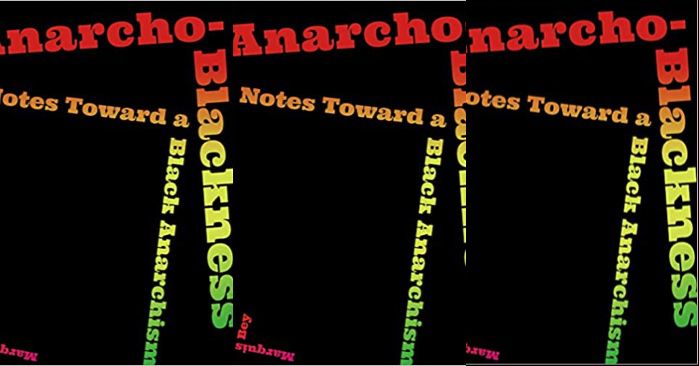Anarcho-Blackness is a qualitative shift of what anarchism is and does, describing the insurgency that defines the abolition of hierarchy and the state.
Roar Magazine – September 8, 2020
Anarchism has long caught a bad rap, being likened to chaos and a negatively connoted devolution into pandemonium — “Things were pure anarchy!” we often hear. But anarchism, in fact, names a mode of relating to the world in non-statist, non-authoritative and directly participatory ways. That is, anarchism commits to engendering a world in which the state — understood as the primary progenitor of violence and not only an institution (or many institutions) but a way of relating to others as well — is abolished; no one has “authority” over others, which is to say that we are all in non-hierarchized relation to one another; and any and all rules or ethics that might affect someone ought to be decided upon in conversation with that person.
Black anarchism, then, is not simply Black people who agree with the aforementioned. Rather, Black anarchism refers to a qualitative shift in what anarchism is and does. This shift is what I have deemed “Anarcho-Blackness.”
Anarcho-Blackness is the analytic I use to think through Black anarchism. Someone like Carl Levy focuses on the “-ism” of anarchism, which defines anarchism as a social movement that arose in a specific time and location and is identifiable as a social movement with members and the like. For me to focus on the anarcho- is to emphasize the spirit of anarchic tendencies and modes of relation. It is a focus on a world-making sensibility rather than a particular political cadre of writing and movements.


